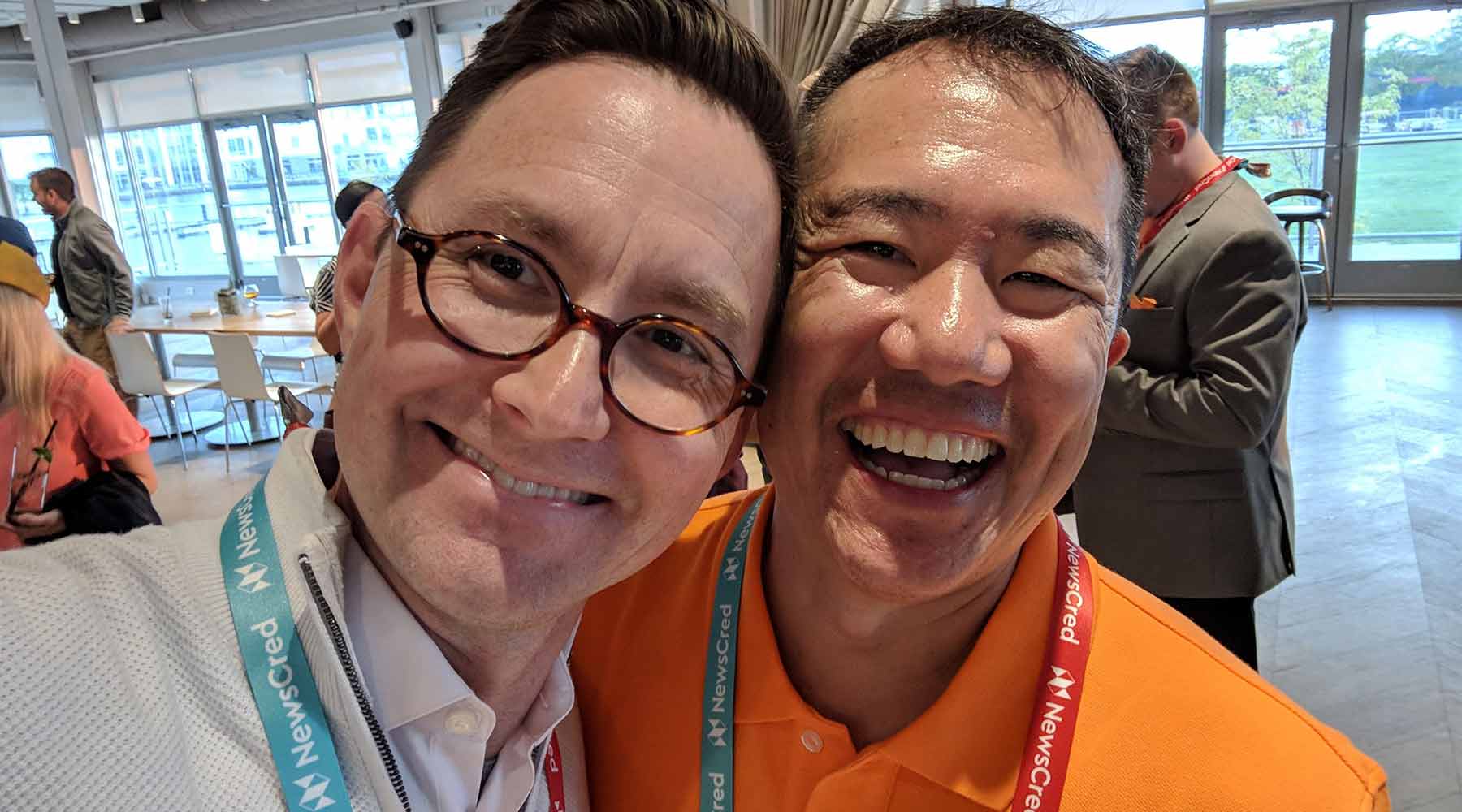
Note: This post is by Dennis Shiao, Founder of Attention Retention (and retired coder).
As a senior in high school, I took an AP course in Computer Science. When I learned to write my first algorithm, I was hooked and decided then and there that I wanted to major in Computer Science in college. Truth be told, I was probably predisposed to study computers since my father was a programmer at IBM and had brought home an early-model IBM PC a few years before.
I got that computer science degree and landed a job as a programmer writing software in C and Perl for an internet service provider (ISP). Later, I moved into management, where I led teams of developers and systems administrators.
So how did I end up in content marketing? It was a winding road to get here, but the signs were apparent all along.
Discovering a Knack for Writing
I’ve always had a knack for writing. At my ISP job, for instance, I chronicled the company’s wallyball games. For the uninitiated, wallyball is a version of volleyball that’s played on a racquetball court— and where it’s legal to hit balls off the walls. I wrote a weekly newsletter called Off the Wall and sent it around the office. I’d document the results on the court, and poke fun at executives — all in a good-natured way.
Years later, I created and managed a blog about my favorite baseball team, the New York Yankees. I launched the blog during the off-season and shared my thoughts about possible free-agent signings. I was thrilled when a sportswriter featured my blog as the Yankees blog of the week in the local newspaper.
Developing a Knack for Reporting
As I wrote in a previous CMSWire piece, I believe that compelling content marketing comes from thinking like a journalist. In high school, I was a reporter for the school newspaper, covering the sports teams. I enjoyed interviewing coaches and relating their answers in articles about the teams’ performances that season.
Because simply reporting the scores wasn’t too challenging, I found it far more interesting to uncover the deeper stories behind those wins and losses. For example, I wrote a piece about the bowling team that profiled how students from different social circles came together in the spirit of competition.
During my high school years, I also developed a passion for reading long-form, investigative journalism. To this day, when I watch movies like All the President’s Men and Spotlight, I still marvel at investigative journalists’ unwavering quest to get to the bottom of a story.
That admiration has led me to believe that if we apply some of the same investigative journalism principles to content marketing, we’ll create stronger, more distinctive and more valuable content.
Evolving My Storytelling Expertise
The writer Joan Didion once said, “I write entirely to find out what I’m thinking, what I’m looking at, what I see and what it means.” I can relate because when I take the time to research and publish an article, I feel the same joy in my finished product that painters or photographers might find in viewing their artistic creations.
In my earlier days as a writer, I liked to tell stories. Today, I like to tell stories that move people. I want to make the kind of impression on readers that inspires them to take action or causes them to think differently.
When I read my published pieces, I often react by thinking, “Hey, I do know a lot about this topic.” That’s one reason why I’ve grown to appreciate the feedback loop inherent in online publishing — the comments, social shares and occasional personal emails. Community feedback provides a powerful inspiration for me to keep writing.
My Lucky Move from IT to Marketing
I owe my transition from IT to marketing to an acquisition. When my employer was acquired, there wasn’t a position available to me as an IT manager but there was an opening in the marketing department.
I convinced the management team to let me try out a new role and since then, I’ve never felt more at home.
From Coding to Connecting
As a computer programmer, 100 per cent perfection is required. All it takes is one missing semicolon and your program won’t compile.
I find writing more nuanced. Perfection is not a requirement, but at the same time, writing provides a far more visceral connection. While software can scale to hundreds of millions of users, writing for me is more about moving people, one reader at a time
When Dad brought home that IBM PC years ago, I’d spend hours typing computer code from a magazine. Perhaps instead, I should have written about the internet revolution that was about to come.
Note: This post was first published as a CMSWire article, “My Evolution From Coder to Content Marketer.”
